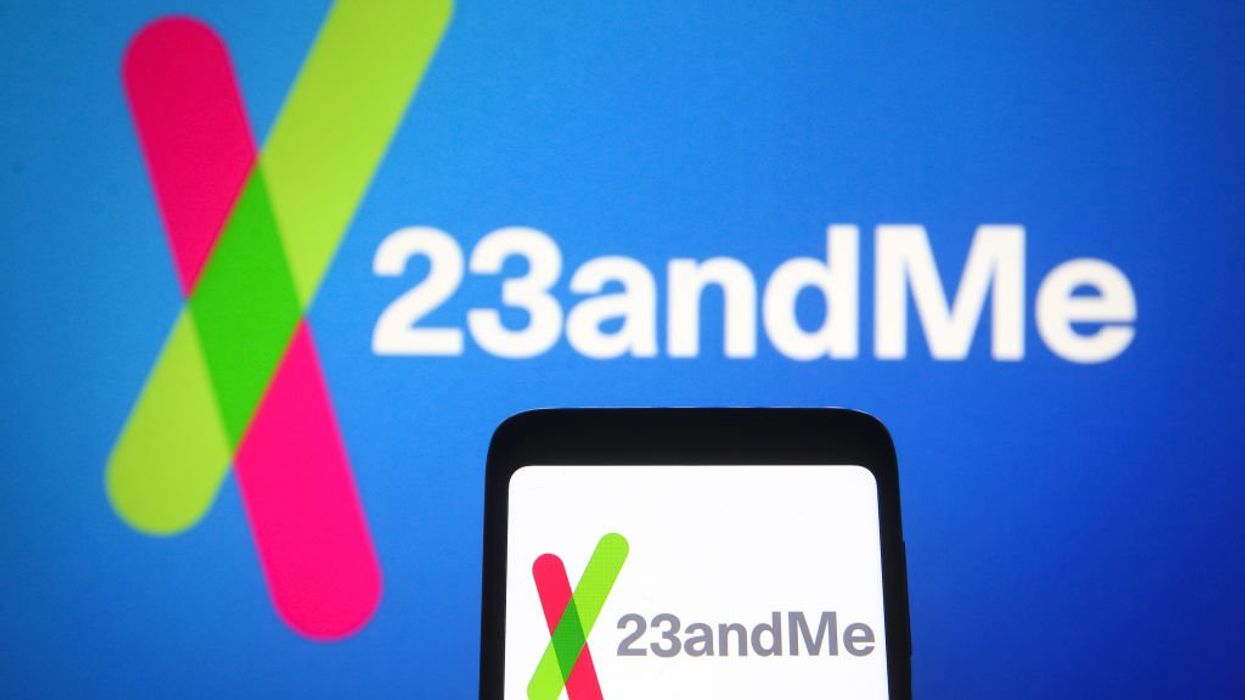
SOPA Images/Getty

When I was first learning percentages, Dad explained them through our family tree.
“I’m half German, a quarter Scottish, and a quarter French. Mom’s a Finn. So that makes you 25% German, 12.5% Scot, 12.5% French, and 50% Finnish.”
“51% Finn!” Mom yelled from the other room. As usual, Mom was right.
Decades later, my two siblings ordered kits from 23andMe to verify the family lore. Both reports were identical, showing a scientifically verified 51% Finnish. I balked when they asked me to get tested. They had already verified what we all knew from tradition. (Also, I’m cheap.)
More importantly, the whole DNA testing business seemed a bit … off. I didn’t want my genetic code sitting on some database. What happens when, not if, there’s a security leak? What happens when, not if, the company goes under? Or maybe the CEO will want to boost his quarterlies by selling the information to the highest bidder. The government could demand access.
What I thought was common sense, my siblings found to be conspiracy theory a dozen years ago. Not so much today.
Thanks to weak privacy laws and Patriot Act gag orders, it’s anyone’s guess how much genetic code is already sitting in a federal database.
23andMe doesn’t merely track ethnicity or staple leaves to the family tree but bills itself as a full-spectrum wellness product. A customer spits in a tube, and the company spits out the person’s carrier status, personal traits — even a health action plan. It also tests for physical predispositions, including Parkinson's disease, type 2 diabetes, and celiac disease.
I’m glad I was satisfied with the family lore. In October, 23andMe notified users of a security breach that had occurred five months before. In December, the company grudgingly revealed the damage done. Hackers stole the information of nearly 7 million customers and posted it online. They accessed about 14,000 profiles, which gave backdoor access to millions more.
Lawsuits are piling up while the bottom drops out on Wall Street. 23andMe reached a high value of $6 billion but has crashed 98% since and now risks delisting. At the time of this writing, its stock value sits at $0.734. This basement valuation better aligns with the reality facing the once-hyped tech firm.
In its 16 years of existence, 23andMe has never made a profit. This didn’t stop CEO Anne Wojcicki from doubling the staff in 2019 and paying herself $33 million two years later.
This story differs markedly from the usual tech boondoggle due to 23andMe’s powerful bioinformatics product. In 2018, GlaxoSmithKline paid $300 million to access 23andMe’s one-of-a-kind database.
Then there are the feds. Would a well-connected Silicon Valley mogul turn down urgent requests from Washington to “protect” the homeland and democracy? Thanks to weak privacy laws and Patriot Act gag orders, it’s anyone’s guess how much genetic code is already sitting in a federal database. Back in 2019, smaller competitor FamilyTreeDNA admitted that it shared information with the feds.
Given the company’s shaky financials and shakier ethics, we can’t rule out that other data leaks were hushed up or were performed by foreign actors. As 23andMe dissolves, one wonders where the data will end up. From the April breach alone, attackers have already curated the profiles of more than a million Ashkenazi Jews into a public list.
A massive, loosely guarded genetic database is an invaluable bioinformatics product. In an era of Wuhan-engineered viruses and governments’ power-mad reaction to them, there’s no end to the mischief bureaucrats can spawn. No doubt companies and NGOs will use the data to market products and messages to us for years to come.
All because people found family lore and tradition an insufficient basis for their identity. The root of 23andMe’s problems isn’t tech, greed, or political overreach but the consumers’ desire to find purpose and meaning in their saliva. Measuring double helixes with a CPU shares the same spirit as measuring skulls with calipers. Basing our self-worth in the scientific analysis of physical traits is neo-phrenology.
What makes us human and infinitely valuable can never be measured by Big Data or the Algorithm. Mom was right.
- YouTube youtu.be
Jon Gabriel